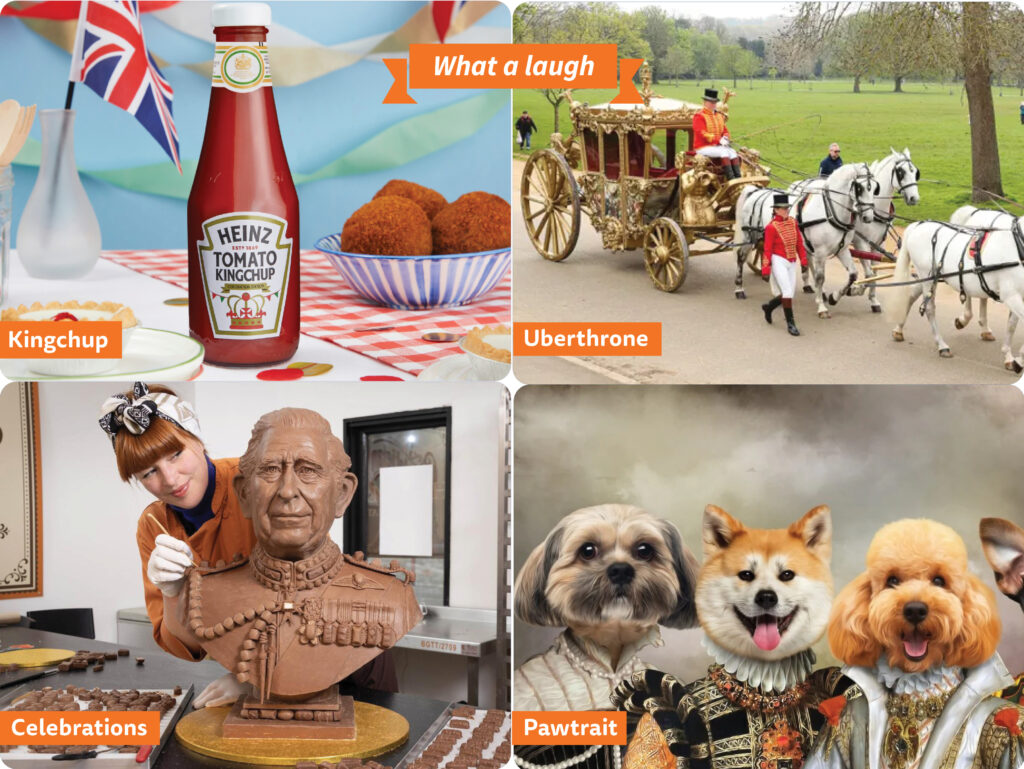Is British humour what we’re really celebrating on Saturday? The coronation has been accompanied by a flood of gimmicks. Some say that is what makes them proud to be British.
Tomato Kingchup and a royal pawtrait
 Having a laugh: Four of the silliest elements of the coronation celebrations.
Having a laugh: Four of the silliest elements of the coronation celebrations. Glossary
Westminster Abbey - A large church in London. Many British kings and queens are buried there.
Pomp and circumstance - The ceremonial formality surrounding a big public event.
Heinz - An American food company known for its tomato ketchup.
Shakespeare - An English playwright and poet who is often called the greatest writer in the English language.
Farce - An absurd situation, or an absurd and comic play.
Irreverence - Lacking respect for things which are normally taken seriously.
Blitz - A German bombing campaign against the UK between 1940 and 1941, during World War Two.
Gallows humour - Ironic humour in a hopeless situation, such as jokes about death.
